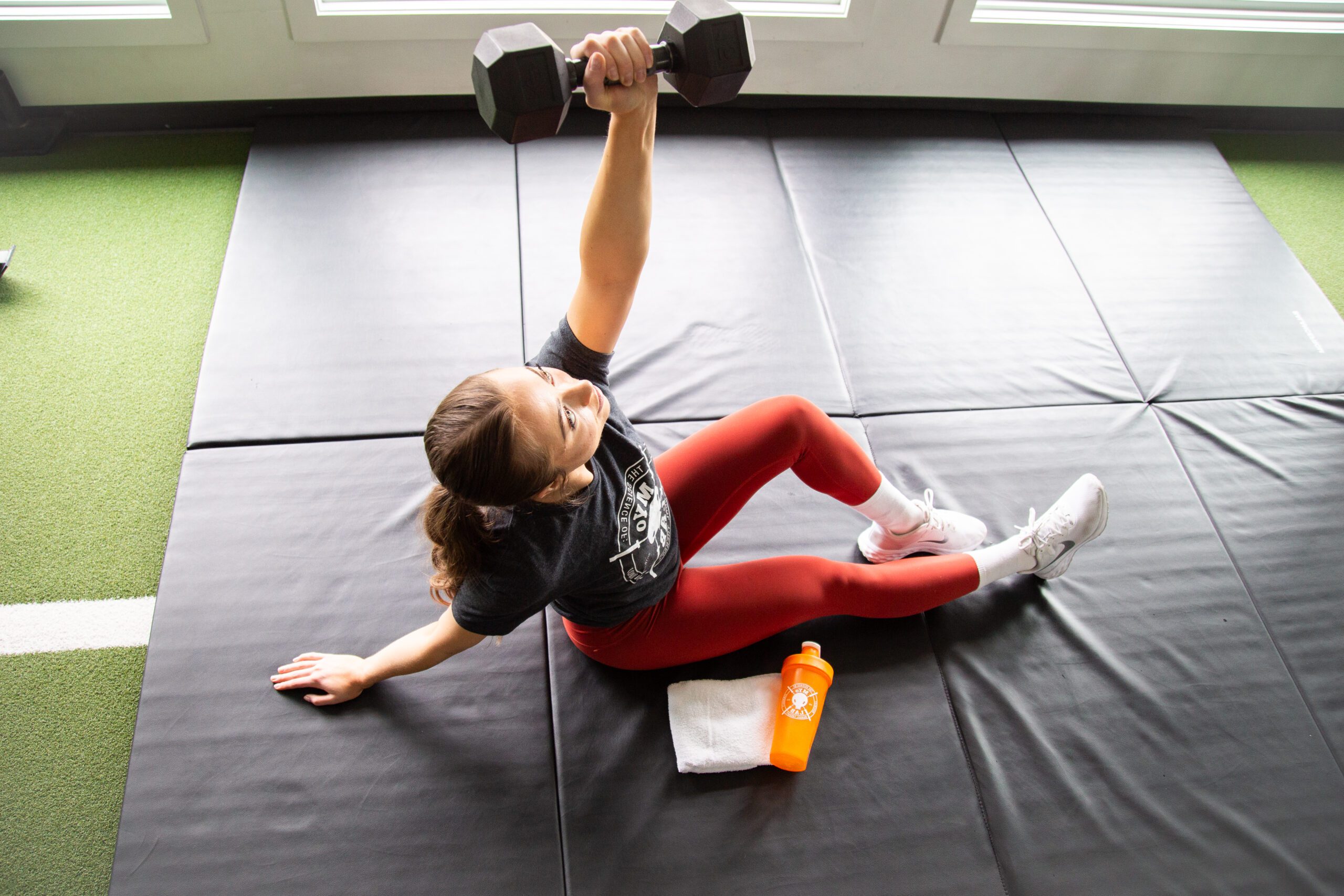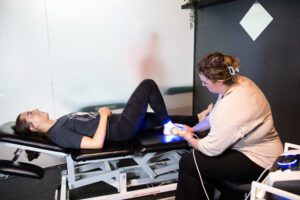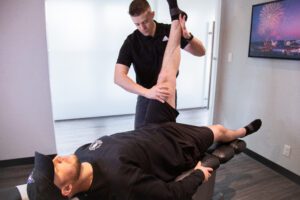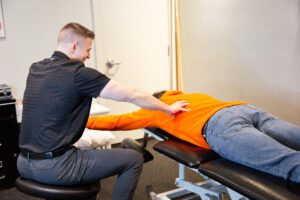
22 Jul Physiotherapy for Gym-Related Injuries
Gym-related injuries are common among fitness enthusiasts, whether you’re a seasoned athlete or just starting your fitness journey. These injuries can disrupt your routine and hinder your progress. Fortunately, Physiotherapy offers effective solutions for preventing, managing, and recovering from gym-related injuries. In this comprehensive guide, we will explore the role of Physiotherapy in addressing workout injuries, provide tips for exercise injury recovery, and highlight how MYo Lab Health & Wellness Calgary can support your fitness goals.
Understanding Gym-Related Injuries
Gym-related injuries can range from minor strains to more severe conditions requiring medical intervention. Common gym injuries include:
- Muscle Strains: Overstretching or tearing of muscles, often caused by lifting heavy weights or improper form.
- Sprains: Injuries to ligaments caused by sudden twists or impacts, commonly affecting ankles and wrists.
- Tendinitis: Inflammation of tendons due to repetitive motions, frequently occurring in shoulders, elbows, and knees.
- Joint Injuries: Damage to joints, such as the knees and shoulders, often from high-impact exercises or overuse.
- Back Pain: Strains or sprains in the lower back, commonly resulting from improper lifting techniques or excessive weight.
The Role of Physiotherapy in Gym Injury Treatment
Physiotherapy plays a crucial role in the treatment and prevention of gym-related injuries. Physiotherapists are trained to assess, diagnose, and create personalized treatment plans tailored to your specific needs. Here’s how Physiotherapy can help:
- Assessment and Diagnosis: A thorough evaluation to identify the root cause of the injury and develop an effective treatment plan.
- Manual Therapy: Hands-on techniques to reduce pain, improve mobility, and promote healing.
- Exercise Prescription: Customized exercise programs to strengthen muscles, improve flexibility, and prevent future injuries.
- Education and Advice: Guidance on proper exercise techniques, posture, and injury prevention strategies.
- Rehabilitation: Structured rehabilitation programs to facilitate a safe and effective recovery process.
Effective Exercises for Injury Recovery
Incorporating specific exercises into your routine can accelerate the recovery process and prevent future injuries. Here are some effective exercises recommended by Physiotherapists at MYo Lab Health & Wellness Calgary:
- Range of Motion Exercises: Gentle movements to improve joint flexibility and reduce stiffness.
- Strength Training: Exercises to build muscle strength and support injured areas.
- Stretches: Stretching routines to enhance flexibility and relieve muscle tension.
- Stability and Balance Exercises: Activities to improve coordination and prevent falls.
- Aerobic Conditioning: Low-impact cardio exercises to maintain cardiovascular fitness during recovery.
Tips for Preventing Gym-Related Injuries
Preventing gym-related injuries is key to maintaining a consistent and effective workout routine. Here are some tips to help you stay injury-free:
- Warm-Up Properly: Always start with a warm-up to prepare your muscles and joints for exercise.
- Use Proper Form: Ensure correct form and technique to avoid unnecessary strain on muscles and joints.
- Progress Gradually: Increase the intensity and duration of your workouts gradually to avoid overloading your body.
- Listen to Your Body: Pay attention to any signs of pain or discomfort and take breaks when needed.
- Stay Hydrated: Drink plenty of water to keep your muscles hydrated and functioning optimally.
- Cool Down: Finish your workout with a cool-down session to help your body recover.
Physiotherapy for Gym-Related Injuries
Gym-related injuries are common, especially when proper techniques aren’t followed or when overtraining occurs. These injuries can range from muscle strains to joint pain, and they often result from improper form, overuse, or inadequate warm-up.
Common Gym-Related Injuries and Their Causes:
1. Muscle Strains: Overstretching or tearing of muscles, often caused by lifting too heavy or not using correct form.
2. Joint Pain: Frequently results from improper alignment or technique during exercises like squats or deadlifts.
3. Tendonitis: Inflammation of tendons due to repetitive motion or overuse, commonly seen in shoulders and elbows.
Physiotherapy plays a crucial role in both the prevention and rehabilitation of gym-related injuries. By improving strength, flexibility, and technique, you can minimize the risk of injury and enhance performance. One key aspect of preventing gym injuries is mastering proper exercise techniques. For example, performing squats with correct form can significantly reduce the risk of knee and lower back injuries. Watch the video below for tips on how to improve your squat technique instantly:
Why Choose MYo Lab Health & Wellness Calgary
At MYo Lab Health & Wellness Calgary, we are dedicated to helping you achieve your fitness goals while minimizing the risk of gym-related injuries. Our team of experienced Physiotherapists provides personalized care and guidance to support your health and wellness journey. Whether you need assistance with injury recovery, preventative care, or performance enhancement, we are here to help.
In addition to Physiotherapy, we offer a range of services, including chiropractic care and massage therapy. Our integrated approach ensures that you receive comprehensive care tailored to your unique needs.
Conclusion
Gym-related injuries can be a setback, but with the right approach, you can recover quickly and get back to your fitness routine. Physiotherapy offers effective solutions for treating and preventing these injuries, ensuring you stay on track with your goals. At MYo Lab Health & Wellness Calgary, we are committed to providing the best care to help you achieve optimal health and fitness. Contact us today to learn more about our services and how we can support your fitness journey.
For more information on choosing the right Physiotherapist, visit our [Understanding the Role of a Physiotherapist] page. To explore our preventative care services, check out our [How to Choose the Right Physiotherapist] page.
Related Posts
 Preventative Physiotherapy: How to Avoid Injuries Injuries can disrupt daily life and hinder physical activities, but with proactive measures through preventative Physiotherapy, many can be avoided altogether. At MYo Lab Health… Read more
Preventative Physiotherapy: How to Avoid Injuries Injuries can disrupt daily life and hinder physical activities, but with proactive measures through preventative Physiotherapy, many can be avoided altogether. At MYo Lab Health… Read more How Physiotherapy Can Improve Your Workout Routine How Physiotherapy Can Improve Your Workout Routine Are you looking to enhance your workout routine and achieve better results? Physiotherapy can be a game-changer in… Read more
How Physiotherapy Can Improve Your Workout Routine How Physiotherapy Can Improve Your Workout Routine Are you looking to enhance your workout routine and achieve better results? Physiotherapy can be a game-changer in… Read more Understanding Manual Therapy in Physiotherapy At MYo Lab Health & Wellness Calgary, although we prioritize Exercise Therapy with our Physiotherapists, we also offer comprehensive manual therapy services to help our… Read more
Understanding Manual Therapy in Physiotherapy At MYo Lab Health & Wellness Calgary, although we prioritize Exercise Therapy with our Physiotherapists, we also offer comprehensive manual therapy services to help our… Read more Common Physiotherapy Treatments and Techniques Physiotherapy is a diverse field that incorporates a variety of treatments and techniques to help patients recover from injuries, manage chronic conditions, and enhance their… Read more
Common Physiotherapy Treatments and Techniques Physiotherapy is a diverse field that incorporates a variety of treatments and techniques to help patients recover from injuries, manage chronic conditions, and enhance their… Read more